Comet Shapes And Characteristics From A Chinese Silk Book (Boshu) Written During The Han Dynasty (206
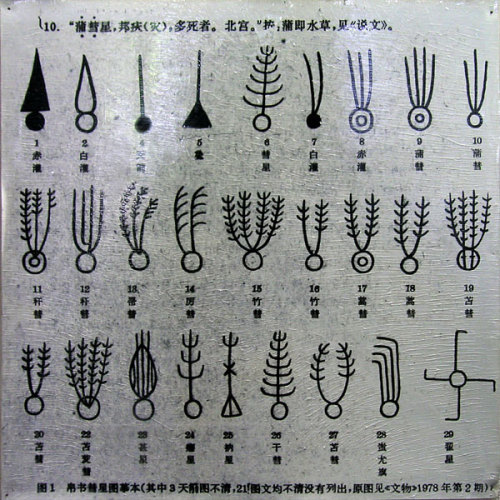
Comet shapes and characteristics from a Chinese silk book (Boshu) written during the Han dynasty (206 BC-22 AD)
More Posts from Astrotidbits-blog and Others

Sorry, Tumblr, but Seth found his new favorite social network to reach fans: Ham radio.
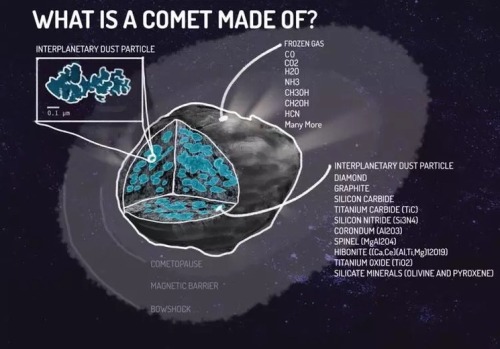
What are comets made of?
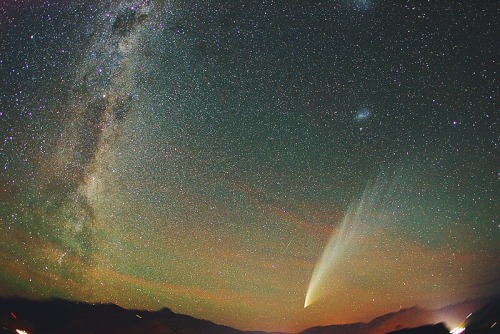
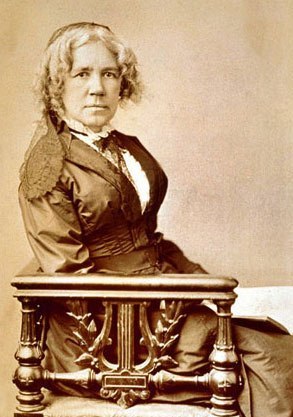
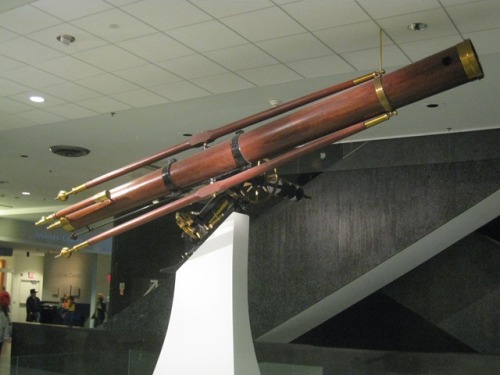
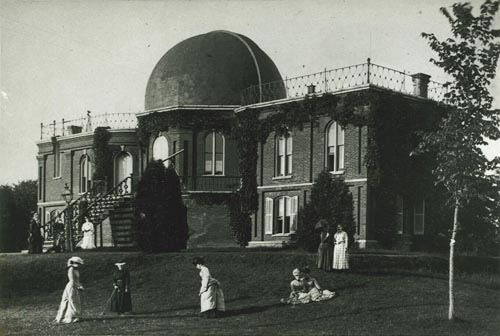
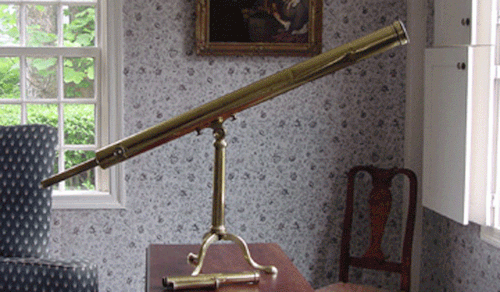
Maria Mitchell - Scientist of the Day
Maria Mitchell, an American astronomer, was born Aug. 1, 1818, in Nantucket. Mitchell was the first professional woman astronomer in the United States and a role model for generations of aspiring women scientists. She was trained by her father, a school-teacher, and had the extreme good fortune to discover a comet in 1847. Not only was she the first to see the comet, she also had the mathematical skill to calculate its orbit. Her feat won her an international gold medal from the Danish government, the first such recognition for any American woman, and eventually, the professorship of astronomy at Vassar College, also the first such position for any woman. (It is probably of interest to some of this reading audience that, before she became famous, Mitchell spent 17 years as a librarian on Nantucket.) Mitchell was admitted to various male bastions, such as the American Academy of Arts and Sciences in Boston (the only woman so honored until the 20th century), but she decided early on that, instead of trying to show men that women could be good scientists, she would spend her life showing young women that they could be good scientists. She seems to have done a superb job at this task, becoming a legendary teacher at Vassar. Antonia Maury, a noted astronomer at Harvard, was one of her pupils. The lovely albumen print portrait of Maria above is at Harvard.
In 1863, Matthew Vassar, the founder of Vassar College, personally commissioned a telescope for Mitchell from Henry Fitz, a well-known New York telescope builder. With a lense 12 inches in diameter, it was second among American telescopes only to the great refractor at Harvard (see second image above). The telescope is now in the National Museum of American History in Washington. Vassar also built an observatory for Maria; a period photo can be seen above, just below the Fitz refractor.
The small telescope that Mitchell used to discover the Nantucket comet is now mounted in her childhood home on Vestal Street (see last photo above), across from the headquarters of the Maria Mitchell Association, the group her descendants founded in 1908 to continue Mitchell’s lifelong passion for the natural sciences and science education.
Dr. William B. Ashworth, Jr., Consultant for the History of Science, Linda Hall Library and Associate Professor, Department of History, University of Missouri-Kansas City
Welcome to Jupiter.
ANNOUNCER at NASA’s Jet Propulsion Laboratory in Pasadena, CA, upon the entry of the Juno spacecraft into orbit around the largest planet in the solar system. Juno, a solar-powered probe, will now conduct a 20-month investigation of the Jovian giant.
Fuck yeah human beings.
(via the Guardian)
Jupiter and beyond the Infinite…
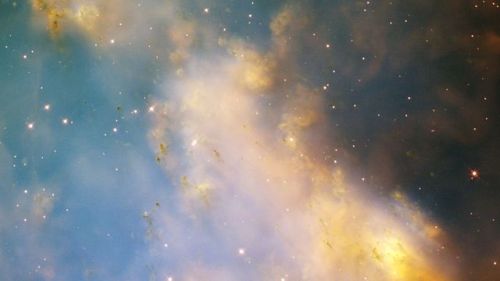
Researchers confirm that mysterious radio waves are actually coming from outer space
The truth is out there — somewhere. Researchers at the Australian National University’s Swinburne University of Technology have confirmed that short bursts of radio waves that had stumped astronomers since their discovery are actually coming from far, far beyond Earth.
The Fast Radio Bursts, or short, intense pulses of radio light, were first picked up at Australia’s Parkes Observatory nearly 10 years ago, according to a statement released Monday by the Swinburne University of Technology.
According to researchers, the FRBs are “about a billion times more luminous” than anything that’s been observed within our own galaxy.But for a long time, scientists couldn’t determine from where, exactly, the bursts were originating. Read more. (4/4/2017 10:03 AM)
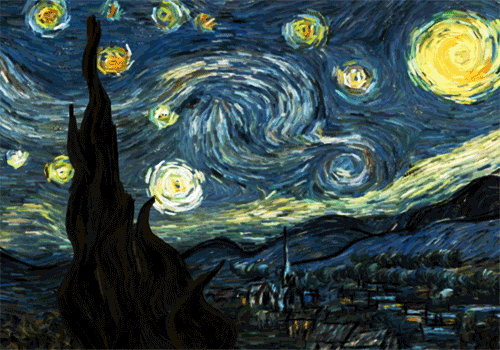
Starry Night,
Vincent Van Gogh
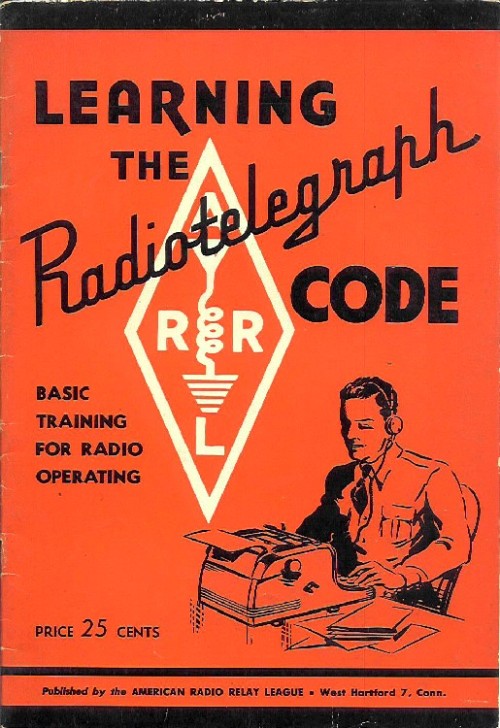
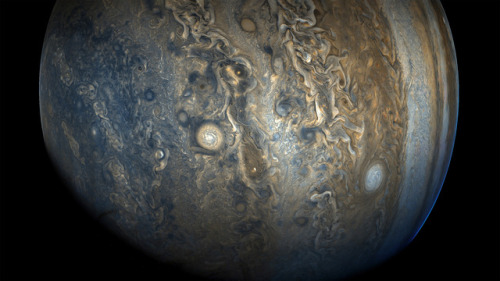
What a stunner! See Jupiter’s southern hemisphere in beautiful detail in this new citizen-scientist-processed JunoCam image.
-
 rogue-coyote liked this · 7 months ago
rogue-coyote liked this · 7 months ago -
 wehdile reblogged this · 7 months ago
wehdile reblogged this · 7 months ago -
 muranowave reblogged this · 8 months ago
muranowave reblogged this · 8 months ago -
 muranowave liked this · 8 months ago
muranowave liked this · 8 months ago -
 cadaverene reblogged this · 9 months ago
cadaverene reblogged this · 9 months ago -
 sentientstump liked this · 9 months ago
sentientstump liked this · 9 months ago -
 fakezircon reblogged this · 9 months ago
fakezircon reblogged this · 9 months ago -
 fakezircon liked this · 9 months ago
fakezircon liked this · 9 months ago -
 fakem00n reblogged this · 9 months ago
fakem00n reblogged this · 9 months ago -
 shorthairbangspace liked this · 10 months ago
shorthairbangspace liked this · 10 months ago -
 lutefisk-kingdom liked this · 10 months ago
lutefisk-kingdom liked this · 10 months ago -
 silly-little-wizard reblogged this · 10 months ago
silly-little-wizard reblogged this · 10 months ago -
 veryvoidsoul-blog reblogged this · 10 months ago
veryvoidsoul-blog reblogged this · 10 months ago -
 saucyplebeian reblogged this · 10 months ago
saucyplebeian reblogged this · 10 months ago -
 bloodspatterguy reblogged this · 10 months ago
bloodspatterguy reblogged this · 10 months ago -
 bloodspatterguy liked this · 10 months ago
bloodspatterguy liked this · 10 months ago -
 yuriprince reblogged this · 10 months ago
yuriprince reblogged this · 10 months ago -
 yuriprince liked this · 10 months ago
yuriprince liked this · 10 months ago -
 protoformx liked this · 10 months ago
protoformx liked this · 10 months ago -
 secretly-mothman liked this · 10 months ago
secretly-mothman liked this · 10 months ago -
 confluencechimera reblogged this · 10 months ago
confluencechimera reblogged this · 10 months ago -
 saxhleel reblogged this · 10 months ago
saxhleel reblogged this · 10 months ago -
 saxhleel liked this · 10 months ago
saxhleel liked this · 10 months ago -
 amebes liked this · 10 months ago
amebes liked this · 10 months ago -
 orowac liked this · 10 months ago
orowac liked this · 10 months ago -
 sonjab608 liked this · 10 months ago
sonjab608 liked this · 10 months ago -
 thetidingsofthemagpie reblogged this · 10 months ago
thetidingsofthemagpie reblogged this · 10 months ago -
 thetidingsofthemagpie liked this · 10 months ago
thetidingsofthemagpie liked this · 10 months ago -
 foxgoblin liked this · 10 months ago
foxgoblin liked this · 10 months ago -
 a1opias reblogged this · 10 months ago
a1opias reblogged this · 10 months ago -
 a1opias liked this · 10 months ago
a1opias liked this · 10 months ago -
 lorefiend liked this · 10 months ago
lorefiend liked this · 10 months ago -
 why-thiss reblogged this · 10 months ago
why-thiss reblogged this · 10 months ago -
 why-thiss liked this · 10 months ago
why-thiss liked this · 10 months ago -
 theairbeast liked this · 10 months ago
theairbeast liked this · 10 months ago -
 erkescapism liked this · 10 months ago
erkescapism liked this · 10 months ago -
 anarchic-jerboa liked this · 10 months ago
anarchic-jerboa liked this · 10 months ago -
 mejasoulfruit reblogged this · 10 months ago
mejasoulfruit reblogged this · 10 months ago -
 mejasoulfruit liked this · 10 months ago
mejasoulfruit liked this · 10 months ago -
 protosstar reblogged this · 10 months ago
protosstar reblogged this · 10 months ago -
 protosstar liked this · 10 months ago
protosstar liked this · 10 months ago -
 mere-glim reblogged this · 10 months ago
mere-glim reblogged this · 10 months ago -
 justamegan liked this · 10 months ago
justamegan liked this · 10 months ago -
 mere-glim liked this · 10 months ago
mere-glim liked this · 10 months ago -
 boneladder reblogged this · 10 months ago
boneladder reblogged this · 10 months ago -
 gothicslouch reblogged this · 10 months ago
gothicslouch reblogged this · 10 months ago -
 felidaereverse liked this · 10 months ago
felidaereverse liked this · 10 months ago